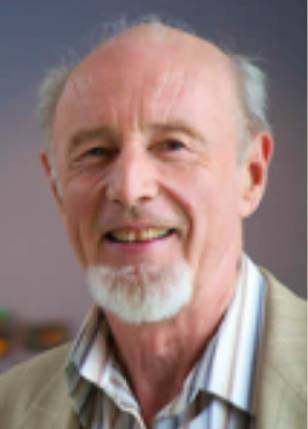
My father was president of a mid-sized steel fabrication company. So I grew up in a business home.
But more than that, I worked in the business, especially in summers, in almost every department: machine shop, punch presses, warehouse, office clerking, payroll – everything except being president!
That, interestingly, is something my father never talked about with me. I think he might have been pleased to see me follow in his footsteps.
Theological education is too good to be reserved for the clergy.
On the other hand, he was delighted that, when I became a Christian at age 18, I headed in the direction of stated Christian service as a pastor.
Over the years I have been a carpenter, student counsellor and equipper; yes, co-owned a business in construction; pastored and, more recently, taught at Regent College and occasionally (and gratefully) at Biblical Graduate School of Theology (BGST) in Singapore.
But I have often wondered what my father would have gained, had he been able to access theological education as a business person (or a homemaker, a doctor or a tradesperson).
I have since become convinced that theological education is too good to be reserved for the clergy. And here is why.
Every day a Christian
My father functioned as a Christian in the workplace but never thought, so far as I know, that what he was doing was a ministry to God and his neighbour.
I had the perfect opportunity to observe my father, working as I did day after day in his business. His door was always open. He treated everyone with respect from the sweeper up to, or down to, the vice president.
Years after he retired, we ran into the caretaker, also retired, who said: “Mr Stevens always treated me with honour and respect.”
Dualism is perhaps the most insidious and dangerous heresy of the Christian church today.
That being said, my father never saw – and, so far as I know, never felt in his spirit – that he was in full-time ministry for the Lord. Indeed, he once said to me: “If I had my life to live over again, I would go into the ministry and do something really worthwhile.”
I write this with some sadness as I, too, got captured with dualism (that some works are sacred and others secular) shortly after being apprehended by Jesus at 18 years of age.
The heresy of the sacred-secular divide
Dualism is perhaps the most insidious and dangerous heresy of the Christian church today and it is globally widespread.
It has multiple sources. Dualism comes from transferring Old Testament concepts of leadership and ministry into the radical new world of New Testament life and work.
There is radical continuity between the Old Testament and New in peoplehood, in God’s grace and mercy, and in God’s purpose for the renewal of everything, but radical discontinuity in certain critical aspects.
For example, under the Old Testament, people had to learn to distinguish between the holy and the ordinary (Leviticus 10:10-11).
But under the New Covenant, in Jesus we are able to present our whole bodily life (working, relating, spending money, etc) to God as a living sacrifice, “which is your spiritual worship” (Romans 12:1-2).
Further, dualism was fed to the infant church by the Greek surrounding culture, which treated the body as an evil shell for the sacred and immortal soul imprisoned in the body.
Biblically, the body is good and the soul is not an immortal organ planted in the evil temporary body, but the soul is the person with longings and hunger for God. We don’t have a soul; we are souls, just as we are bodies.
So, instead of saying that pastoral work is sacred and business (or any other kind of societal work) is secular, that pastoral work is eternal while business work is temporal, we can envision all kinds of work as holy towards God and having eternal consequences.
We can envision all kinds of work as holy towards God and having eternal consequences.
I wish my dad had learned that all of his work was holy and pleasing to God and that some of it would last.
That last comment – that some of it would last – needs more explanation.
Is there an option?
Dualism is so deeply engrained that it is institutionalised in the life of the local church, very widely and almost universally.
I grew up on the poem, “Only one life, t’will soon be passed, only what’s done for Jesus will last.” The sentiment (and bad theology) behind this poem has driven a whole generation into “full-time ministry” when there is no part-time option available to followers of Jesus!
When people tell me they are going into “the Lord’s work”, I always say: “What were you doing before? It is all right if God leads you to go from one kind of ‘Lord’s work’ into another kind of ‘Lord’s work’.
“But don’t say you are going from secular work to God’s work.
“And don’t say there are only eternal consequences in work that is stated Christian ministry.”
How come?
We ask two questions about our work and the next life. One question is this: Will ordinary work last into the next life? The second question is whether we will work in the next life.
Will anything we do in this life last forever, other than our witnessing to the beauty of the Good News and inviting people to come into the fellowship of Jesus and His rule – very good things to do.
Scripture teaches that if the work is done for the Lord, with faith, hope and love, it can last.
Homework, business work, professional work, trades work and relational work – can these somehow be purified of sin and distortion and find their place in the new heaven and new earth?
Yes, Scripture teaches if the work is done for the Lord, done with faith, hope and love, it can last.
Work that lasts
Ironically, the poem I quoted is actually true: Anything done for the Lord will last – the cedar deck I made as a carpenter, my wife’s famous chocolate chip cookies and her capacity for listening empathetically on the telephone.
Some of our work will pass “the fire test” of 1 Corinthians 3:13-15. Paul says as much in the famous resurrection chapter in 1 Corinthians 15:58: “Your labour in the Lord is not in vain.”
“In the Lord your labour is not in vain. You are following Jesus and shaping our world in the power of the Spirit.”
NT Wright captures this brilliantly in his book, The Challenge of Jesus: “In the Lord your labour is not in vain. You are following Jesus and shaping our world in the power of the Spirit; and when the final consummation comes, the work that you have done, whether in Bible study or biochemistry, whether in preaching or in pure mathematics, whether in digging ditches or in composing symphonies, will stand, will last.”
But the second question is one that often troubles people: Will we be working in the new heaven and new earth?
So we think there will be no work for pastors (everyone there will be saved).
No work for doctors (everyone will have perfect bodies even though the resurrected body of Jesus had scars).
No work for business people (no exchange of goods and services).
But wait a moment. Maybe we have got it all wrong and a good theological education will correct this.
All things made new
When Christ returns, everything does not get annihilated and then “out of nothing” God creates a brand new heaven and earth. In such a view, it doesn’t matter what we do with Planet Earth.
But rather, the image of 2 Peter 3:10-13 in the New Testament is that of putting ore into a hot cauldron, turning up the heat and burning out the dross and impurities, producing the “renewal of all things”, which is a lovely biblical phrase.
In the next life, we will work, for that is part of our God-like dignity.
So, in the next life we will be fully human, not souls floating around in the ether of heaven. And being fully human, we will be more in the image of God than ever before. We will work, for that is part of our God-like dignity (for God is a worker).
But the work will be without any curse, without sweat, without flaws.
And the work will be like child’s work, which is work-play and play-work. It will be work-worship, true avodah, the word in Hebrew that expresses the seamless connection of work and worship.
So I imagine my father, now with the Lord, discovering to his amazement that some of his work, making deals, and my mother, now with the Lord, making meals, are transformed in the divine smelter, finding their place in the new heaven and new earth.
Blessedness for life
George MacDonald was a theologian for ordinary people. And he envisaged a heaven where exchange was taking place with goods and services passing this way and that, all in his imagination, without money.
But even if there is no money, bankers will find a way to use the talents and skills with which our Creator God endowed them, in some new way.
Theology is about life lived in the light of God’s presence and purpose.
But this affirmation that theological education is too good to be reserved for the clergy comes with a warning: Make sure it is good. Make sure it is biblical. Make sure it is about life.
My favourite definition of theology comes from the Puritan William Perkins: “Theology is the science of living blessedly forever.”
Note it is a science involving study. But it is not about esoteric realities.
It is about life. But not just life. It is about life lived in the light of God’s presence and purpose, ie “blessedly”.
And it is not just for this life. It is forever.
Find a good theological school, take some courses, attend some lectures, read some books. Get your life lived and work done blessedly forever.
This article was first published in the Bible Graduate School of Theology (BGST) newsletter and is republished here with permission.
We are an independent, non-profit organisation that relies on the generosity of our readers, such as yourself, to continue serving the kingdom. Every dollar donated goes directly back into our editorial coverage.
Would you consider partnering with us in our kingdom work by supporting us financially, either as a one-off donation, or a recurring pledge?
Support Salt&Light




